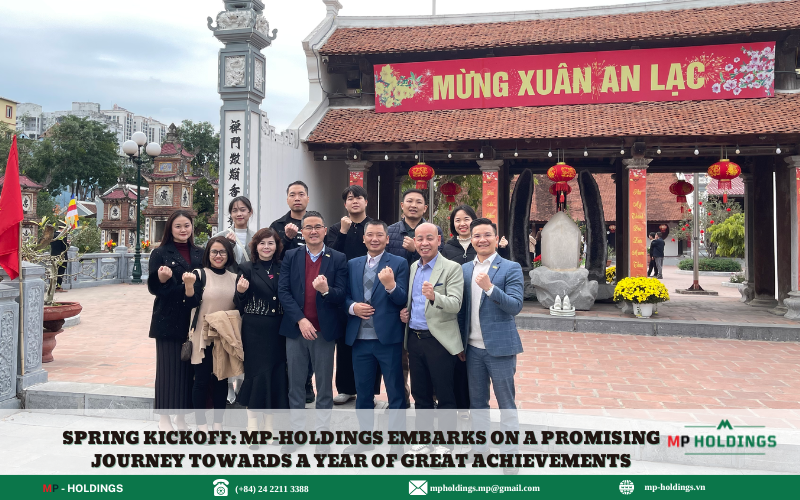At the beginning of 2024, the Vietnamese real estate market witnessed many fluctuations and new trends, requiring businesses to adopt flexible and effective financial management strategies
On the path of development for a real estate enterprise, financial management is one of the key factors determining success or failure. Especially, at the beginning of 2024, the Vietnamese real estate market witnessed many fluctuations and new trends, requiring businesses to adopt flexible and effective financial management strategies. This article will delve into key points to consider when updating market information, applying financial management strategies in the real estate sector, and provide guidance on improving the financial strategy of enterprises based on specific examples and case studies.
- Vietnam Real Estate Market in Early 2024: Overview and New Trends
The Vietnamese real estate market in early 2024 continues to be one of the notable sectors attracting the attention of investors and property buyers. Up to this point, the market has experienced some fluctuations and transformations, while also reflecting several noteworthy new trends
Market Situation
In recent years, the real estate market in Vietnam has witnessed stability and positive development, with numerous large-scale projects being implemented in major cities such as Hanoi, Ho Chi Minh City, and other major urban areas. The development of infrastructure, supportive policies from the government, as well as economic growth, all contribute to the favorable conditions for this market.
Moreover, some fluctuations can be observed due to changes in legal policies related to real estate, such as land policies, taxes, and regulations regarding social housing. These fluctuations may affect the scale and planning of real estate projects, as well as create new opportunities or challenges for investors and businesses in the industry.

Read more at:
https://mp-holdings.vn/thi-truong-bds-se-co-buoc-chuyen-minh-trong-nam-2024/
New trend
One of the clear trends in the Vietnamese real estate market in early 2024 is the transition from a rapid development model to a sustainable model.
 (Technology is increasingly being applied in the financial management process of enterprises)
(Technology is increasingly being applied in the financial management process of enterprises)
Real estate enterprises are gradually shifting their focus from expanding scale to concentrating on product quality, green standards, and energy efficiency.
Technology is playing an increasingly important role in the real estate industry. From using mobile applications to blockchain technology in real estate transactions, technology is driving changes and advancements in how buyers and sellers interact and conduct transactions, aiming to enhance project quality.
In summary, the Vietnamese real estate market in early 2024 continues to be a bright spot in the country’s economy, with stability and positive development. However, changes in legal policies and new trends such as the transition to sustainable development models and the impact of technology pose both challenges and new opportunities for investors and businesses in the industry. This requires enterprises to be cautious and flexible in adjusting their strategies and business plans to respond appropriately to the evolving market environment.
- Financial Management Strategy for Real Estate Enterprises
The financial management strategy of a real estate enterprise is an essential part of ensuring stability and success in a competitive and volatile business environment.
Capital Investment Management
The selection and allocation of capital investment into real estate projects must be done carefully and appropriately. This ensures that the enterprise maximizes profit opportunities while minimizing risks. Additionally, based on the financial situation and development goals, the enterprise needs to consider diversifying its sources of capital, including self-funding, bank loans, investment partnerships, and other financial investment channels.

(Enterprise Financial Management Strategy: Capital Investment Management)
Risk Management
Real estate enterprises must proactively assess and manage risks, from market risks to legal and financial risks. This ensures that the enterprise has contingency plans and procedures in place when risks occur. Additionally, utilizing insurance products such as home insurance, natural disaster insurance, and construction risk insurance helps minimize risks and protect the assets of the enterprise.
 (Enterprise Financial Management Strategy: Risk Management)
(Enterprise Financial Management Strategy: Risk Management)
Cash Flow Management
Monitoring and forecasting cash flow, optimizing cash cycles including enhancing revenue management, minimizing unnecessary expenses, and efficiently managing debt repayments.
Investing in Financial Management Capacity
Investing in training and developing personnel in the field of financial management is crucial. This helps improve work efficiency and the ability to cope with complex financial challenges. Additionally, collaborating with financial and accounting experts is an effective way to ensure that the enterprise’s financial processes and strategies are carried out accurately and efficiently.
 (Enterprise Financial Management Strategy: Cash Flow Management)
(Enterprise Financial Management Strategy: Cash Flow Management)
Read more at: https://mp-holdings.vn/mp-holdings-to-chuc-dao-tao-noi-bo-chuyen-sau/
3. A Successful Case Study: Vingroup
Vingroup is a prime example of successful financial management strategy implementation in the real estate sector. By diversifying capital sources, effectively managing risks, and investing in financial management capabilities, Vingroup has gradually become one of the leading real estate conglomerates in Vietnam.

(Vingroup is one of the successful case studies in the real estate sector regarding enterprise financial management strategy.)
Read more at: https://mp-holdings.vn/mp-holding-day-manh-muc-tieu-thu-hut-von-dau-tu-quoc-te/
In the current landscape where the real estate market faces numerous challenges and new opportunities, applying effective financial management strategies is key to sustainable development for enterprises. It is hoped that with the market information, financial management insights, and case studies shared by MP-HOLDINGS, businesses can seize opportunities and cope with challenges in this field.












